Latest Entries Journal of Nursing

Bedside Manners Greatly Matters
Tags: attitude Bedside Manner caregiver nurses Patient-centered care patients
Amongst all the other healthcare providers, nurses are the ones who can have the opportunity to connect deeply with their patients. Every nurse can have the opportunity to develop and build their patient's trust on them or to be hesitant and increase their patients anxiety.
Read More →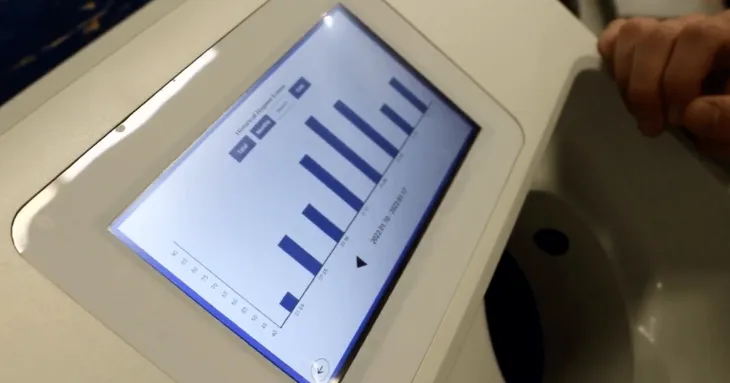
Using Electronic Hand Hygiene Monitoring System Data as Supplement to Accurately Report on Nursing Staff Hours per Resident Day
Tags: care hygiene nursing patient staffing
Electronic hand hygiene monitoring systems offer an objective data source for measuring actual patient care presence, supplementing traditional payroll-based reporting for CMS and Leapfrog staffing metrics. By utilizing role-specific, time-in-room data, organizations can enhance the accuracy and transparency of reported nursing hours per resident day (HPRD) while validating staffing compliance.
Read More →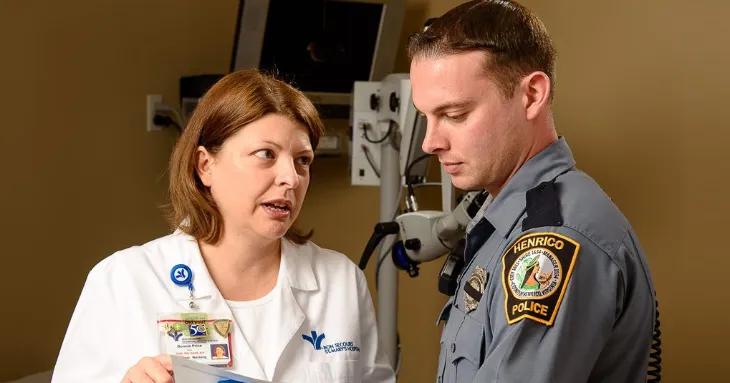
From shift to Leadership: Advancing Nurses through experience and Mastery, Not just degrees
Tags: experiences leadership nurses nursing promotion
Lessons from Policing/Law Enforcement Promotion Models, Promotion of Nurses through experience and Mastery using the policing/Law enforcement promotion model.
Read More →
A Study to Assess the Effectiveness of Structured Teaching Programme on Knowledge Regarding School Phobia among Mothers of Primary School Children in Selected Schools at Tumkur
Tags: assessment awareness children health knowledge Mothers phobia school
The structured teaching programme was highly effective in enhancing the knowledge of mothers regarding school phobia. Early parental awareness can contribute to timely identification and prevention of psychological complications in school children.
Read More →
A Study To Assess The Knowledge And Practice Of Mothers Of Under Five Children Regarding First Aid Management Of Foreign Body Aspiration In Vazhayur Panchayath
Tags: child first aid pediatric
A descriptive study to "Assess the knowledge and practice of mothers of under five children regarding the first aid management of foreign body aspiration in Vazhayur Panchayath" is aimed to assess the knowledge and practice of mothers of under five children regarding first aid management of foreign body aspiration with a view to prepare an information booklet.. The key findings of the study likely explores the level of knowledge among mothers about foreign body aspiration.. It may identify gaps in knowledge and practice areas where education is needed. The study result showed that majority of the mothers had moderate knowledge regarding the first aid management. The study's findings can inform the development of targeted educational interventions to improve knowledge among mothers of under five children.. The study suggests avenues for future research, such as intervention studies and comparative studies.
Read More →
From Chaos to Clarity: Bedside Handoff in Obstetric Nursing
Tags: obstetric patient safety pregnancy reporting
Obstetric nursing is complex and fast paced, requiring clear communication to support safe patient care. This article looks at the importance of shift-to-shift bedside handoff in obstetrics involving both nurses and patients, and how it improves communication and accountability.
Read More →
Enhancing Equity and Access in Canadian Maternal Healthcare
Tags: canada childbirth pregnancy
This brief paper provides an overview of maternal healthcare services in Canada and proposes recommendations to enhance access and promote equitable maternal healthcare services.
Read More →
The Role of a Nurse Educator: Integrating Evidence-Based Practice throughout Nursing Curricula
Tags: clinical decisions decision-making Educational Practices Evidence-based nursing Nurse Education
Evidence-based practice (EBP) is necessary to provide safe & high-quality nursing care, yet nursing graduates commonly report low levels of confidence with utilizing clinical decisions based on their research findings. Nurse educators have an important role in developing EBP competence through the integration of evidence-based practice across the nursing curriculum. This academic briefing focused on EBP in nursing education, highlighted recent studies that substantiate effective teaching practices, and discussed implications for nurse educators to better prepare students for evidence-based practice.
Read More →
Leadership Styles in Nursing: Finding the Approach That Fits
Tags: leadership leadership in nursing leadership style nurse nurses nursing patient Team
Effective nursing leadership isn’t one-size-fits-all. In today’s fast-paced and complex healthcare settings, strong nurse leaders adapt their approach based on patient needs, team dynamics, and the challenges at hand. Developing an understanding of different leadership styles allows nurses to grow with intention and lead more confidently—whether at the bedside, in leadership roles, or in advanced practice. In this article, we’ll take a closer look at six essential leadership styles in nursing: transformational, transactional, servant, democratic, autocratic, and laissez-faire, and how each can be used to strengthen teams and improve care.
Read More →
Opinion: New Nurse Training Needs a reality check
Tags: Nurse Education nurse training
Opinion on new nurse orientation
Read More →
Why Nurses Are the Key to Solving Today’s Healthcare Challenges
Tags: care compassion education nurses patients technology
The healthcare industry faces many challenges, such as rising patient loads, staff shortages, and increasing chronic conditions. Nursing professionals stand at the forefront, offering the skills and compassion required to address these challenges and drive meaningful change
Read More →
At the Intersection of Respect and Safety: Navigating the Hardest Balance in Family Caregiving
Tags: caregiver elderly care elderly patients
This article is about my own caregiving journey with my grandfather, as a nurse, who navigated the difficult balance of safety and respect.
Read More →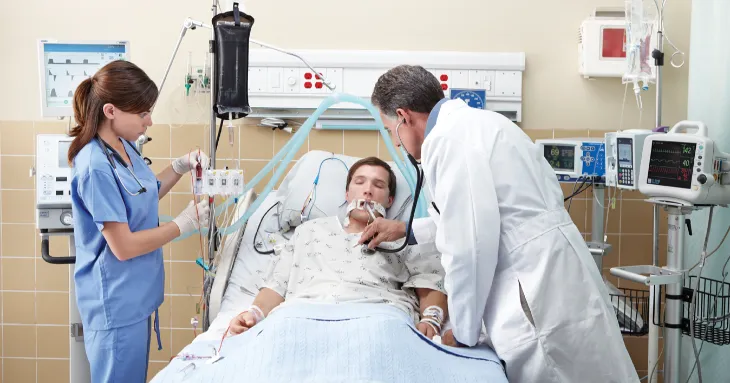
Early Mobilization in Mechanically Ventilated ICU Patients: Advancing Recovery Through Evidence-Based Practice
Tags: ICU multidisciplinary patient outcomes recovery review study
The proposed study aims to examine how the timing of early mobilization in mechanically ventilated patients influences Intensive Care Unit (ICU) length of stay and the incidence of delirium. The purpose of this study is to identify key factors and barriers that delay early mobilization efforts, which may contribute to lengthened hospital stays and higher delirium rates among critically ill patients. This study is guided by the research question: How does the timing of mobilization in mechanically ventilated patients influence length of stay and incidence of delirium? Understanding these relationships is essential for improving patient outcomes, optimizing critical care practices, and promoting evidenced-based interventions. The findings from this study have the potential to inform clinical guidelines and encourage multidisciplinary collaboration to overcome barriers to early mobilization in the ICU.
Read More →
Calling on Nurses: Adopt An Orphan (Disease)
Tags: disease Nurse Education nurses patient care patients rare disease
Nurses can be experts on a illness many not be familiar with and can advocate fo these patients. In learning about a rare disease you will learn about many related "minstream" illnesses increasing your overall knowledge. You will bring hope to those who have been neglected in research and the pharmaceutical industry.
Read More →
Nine or Ninety, We All Want a Choice
Tags: elder care elderly patients Nurse Education
A well-intentioned “reading buddies” program paired third graders with nursing home residents, but during a clinical rotation, I witnessed a painful mismatch: a struggling young reader in tears after a resident on hospice brusquely dismissed him. The resident hadn’t chosen to participate and didn’t want to spend her limited time that way, and the child felt rejected. The incident revealed how intergenerational programs, though beneficial in theory, can backfire when participation isn’t voluntary or thoughtfully matched—showing that choice is essential for both children and older adults. A well-intentioned “reading buddies” program paired third graders with nursing home residents, but during a clinical rotation, I witnessed a painful mismatch: a struggling young reader in tears after a resident on hospice brusquely dismissed him. The resident hadn’t chosen to participate and didn’t want to spend her limited time that way, and the child felt rejected. The incident revealed how intergenerational programs, though beneficial in theory, can backfire when participation isn’t voluntary or thoughtfully matched—showing that choice is essential for both children and older adults.
Read More →
Burned Out Nurse, Restored
Tags: burnout career guidance nurse burnout
Mid-career nurse who after 20 years and suffering burnout, pivoted to a remote nursing role, restoring work-life balance and peace of mind.
Read More →
I'm Not Family
Tags: end of life care nurse training patient care
Nurses may not be your family, but we care like you'll invite us to your next family dinner.
Read More →
From No Suck to Small Steps: A Story of Persistence and Care
Tags: new born care
A newborn lacked a suck reflex, prompting alternative feeding and an OT consult. Post-discharge, the mother remained committed to breastfeeding despite challenges. Continued support and therapy led to gradual improvement.
Read More →
BRN Complaint - Do Not Let This Happen To You
Tags: brn complaint legal advice nursing license
I recently had a BRN complaint from a prior employer. My story outlines what I learned and will practice moving forward.
Read More →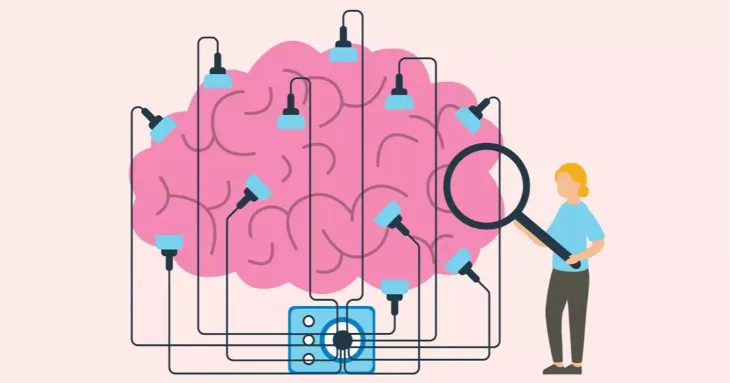
Neuroplasticity Unveiled: A Nonpharmacological Approach to Reducing Behavioral Psychological Symptoms of Dementia
Tags: Alzheimer’s behavioral dementia mental health need
The purpose of this article is to highlight what Cognitive Behavioral Therapy (CBT) can do to reduce the behavioral and psychological symptoms of Dementia with a multimodality Cognitive Behavioral Therapy (CBT) in a memory care unit. CBT is discussed in detail, and nurses can replicate this CBT with their patients who have mild and moderate dementia or cognitive decline.
Read More →
A Seat at the Table: Nurses Leading the Call for Change
Tags: healthcare leadership leadership in nursing nursing community
This poem expresses my concern over injustice and loss of compassion in healthcare and all aspects of our society. It highlights nurses' trusted role in caring for vulnerable people and calls for change. I hope it inspires nurses to unite and lead in shaping healthcare policy because healthcare is a basic right and nurses must have a voice in decisions that affect us all.
Read More →
Orthodox Jewish Medical Beliefs and Practices
Tags: culture diversity ethical values nursing education
his article provides an overview of Orthodox Jewish medical beliefs and practices. It emphasizes how the Orthodox faith influences healthcare decisions. The article explains key pracitices such as observance of the Sabbath, daily prayer routines, and strict modesty may affect patient care. Overall, this article stresses that healthcare providers should respect and accomadate Orthodox Jewish traditions and how their faith guides every decision.
Read More →
Impact of Stress and Lifestyle on Cardiac Health in College Students
Tags: cardiac health cardiovascular disease nurse well-being Nursing Initiative nursing students Stress among Nurses Young People
This article explores how stress and lifestyle habits influence cardiac health in college students. It emphasizes the role of nurses in promoting heart-healthy practices and managing stress. Observations suggest that irregular meals, sedentary routines, and late-night study patterns increase cardiovascular risk.
Read More →
The Unmeasured Discomfort: Shivering in PACU and The Use of a Bedside Shivering Assessment Scale
Tags: anesthesia Hypothermia nurse training Post-Anesthesia Care Surgical Recovery
Postoperative shivering is a common complication of general anesthesia. This can cause patient pain, distress, and hemodynamic changes. Nurses should use a BSAS to assess the severity of shivering and take appropriate interventions to minimize this with pharmacological and non-pharmacological methods.
Read More →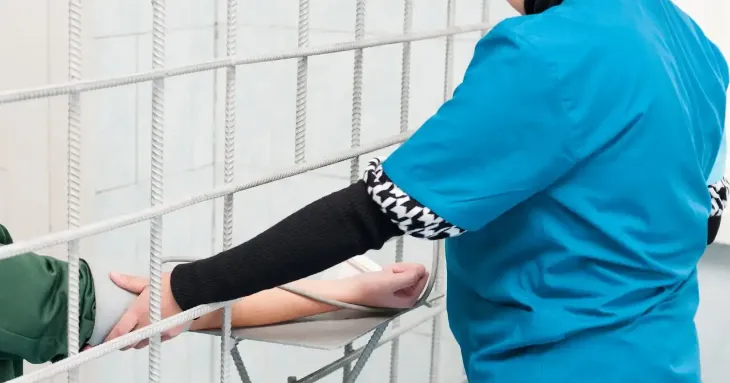
The House of the Least of These
Tags: compassion ethical principles in nursing trauma
This is a brief article about the impact of advocating for your patients in a correctional facility.
Read More →
Evidence Based Practice - Ultrasound Guided Peripheral IV Placement
Tags: catheters clinical nurse critical care Emergency nurse patient safety
This study aims to show that nurse driven placement of ultrasound guided peripheral intravenous access in the emergency department will improve patient care.
Read More →
Nurse Burnout: Am I the Only One?
Tags: nurse burnout nurse mental health nurse well-being self care wellbeing
A poetic piece on burnout in nursing with a positive note added.
Read More →
The Vagina :Bringing the Vagina Back to Life After Menopause Non-Hormonal Treatment Approaches for Atrophic Vaginitis and Chronic UTIs in Estrogen-Restricted Women In honor of the women who have suffered in silence
This paper is dedicated to the many women I have had the privilege of treating for atrophic vaginitis during menopause. Atrophic vaginitis—characterized by vaginal dryness, tissue thinning, and the involution of the vagina, labia, and urethra—is primarily caused by estrogen deficiency. I reflect on the voices of women whose needs have been unmet due to contraindications for estrogen therapy, often stemming from a history of cancer or other medical concerns. This work seeks to explore evidence-based, non-hormonal alternatives to manage atrophic vaginitis in menopausal women who cannot undergo estrogen therapy. Atrophic vaginitis does not affect the vagina alone—it also compromises the urethra, labia minora, labia majora, and the vaginal introitus (Faubion et al., 2017). Many of my patients have expressed frustration and distress as they navigate these symptoms without access to estrogen treatment. Their suffering and pleas for relief fuel the urgency of exploring and validating safe, effective, and estrogen-free therapeutic options.
Read More →
All the Hats We Wear: The Soul of a Nurse
Tags: compassion nurse support nurse well-being
This article explores the many roles that nurses take on- mentor, leader, advocate, caregiver- and highlights how the essence of nursing goes beyond clinical expertise to the heart of human connection. As new generations enter the profession in a post-COVID, increasingly virtual world, many lack opportunities to develop crucial interpersonal skills. The piece emphasizes the importance of mentorship, modeling compassion, and preserving the "old-school" art of nursing to ensure the soul of the profession endures.
Read More →
The Effect of A Neurological Training Module On The Competency of Neurocritical Care Staff Nurses
Tags: Brain EMERGENT training nurological care nurse training stroke
In this study, the competency training module had an effect in the post-test in the aspects of cognitive and affective domains only; thereby, accepting H1 and H0 was rejected. The training module did not affect the psychomotor domain. Based on the results of the study, H2 was accepted, there was no significant difference between the staff nurses’ profile with the results of the post-test; therefore, H3 was rejected. In this study, the competency training module had an effect in the post-test in the aspects of cognitive and affective domains only; thereby, accepting H1 and H0 was rejected. The training module did not affect the psychomotor domain.
Read More →Get Published for Free
Browse by Tag
advocate aging anesthesia behavior cardiac care caregiver Case Study child children clinical compassion COVID-19 critical care death disease education emergency department end of life ethical values future of nursing health health care ICU leadership medication mental health nurse Nurse Education nurses nursing nursing education nursing ethics nursing school nursing students PACU patient patient care patient outcomes patient safety patients pediatric poem profession risk factors stress students teaching technology treatment
Most Popular Last Month
More from RN Journal
Bedside Manners Greatly Matters
Enuresis
Enhancing Nursing Assistant Curriculum: Incorporating Strategies to Speak Up for Safety
An Effective Orientation Program is Key to Laying the Framework within a Virtual Nursing Environment
Clinical Nurse Leadership and Performance Improvement on Surgical Unit
Interactive Technology is Shaping Patient Education and Experience
My Nursing Career A Whole New Appreciation
The Crucial Role of DEI in Education and Healthcare
Managing Diabetic Patients on Dialysis: The Nurse and Practitioners Role in Multidisciplinary Team Essentials









